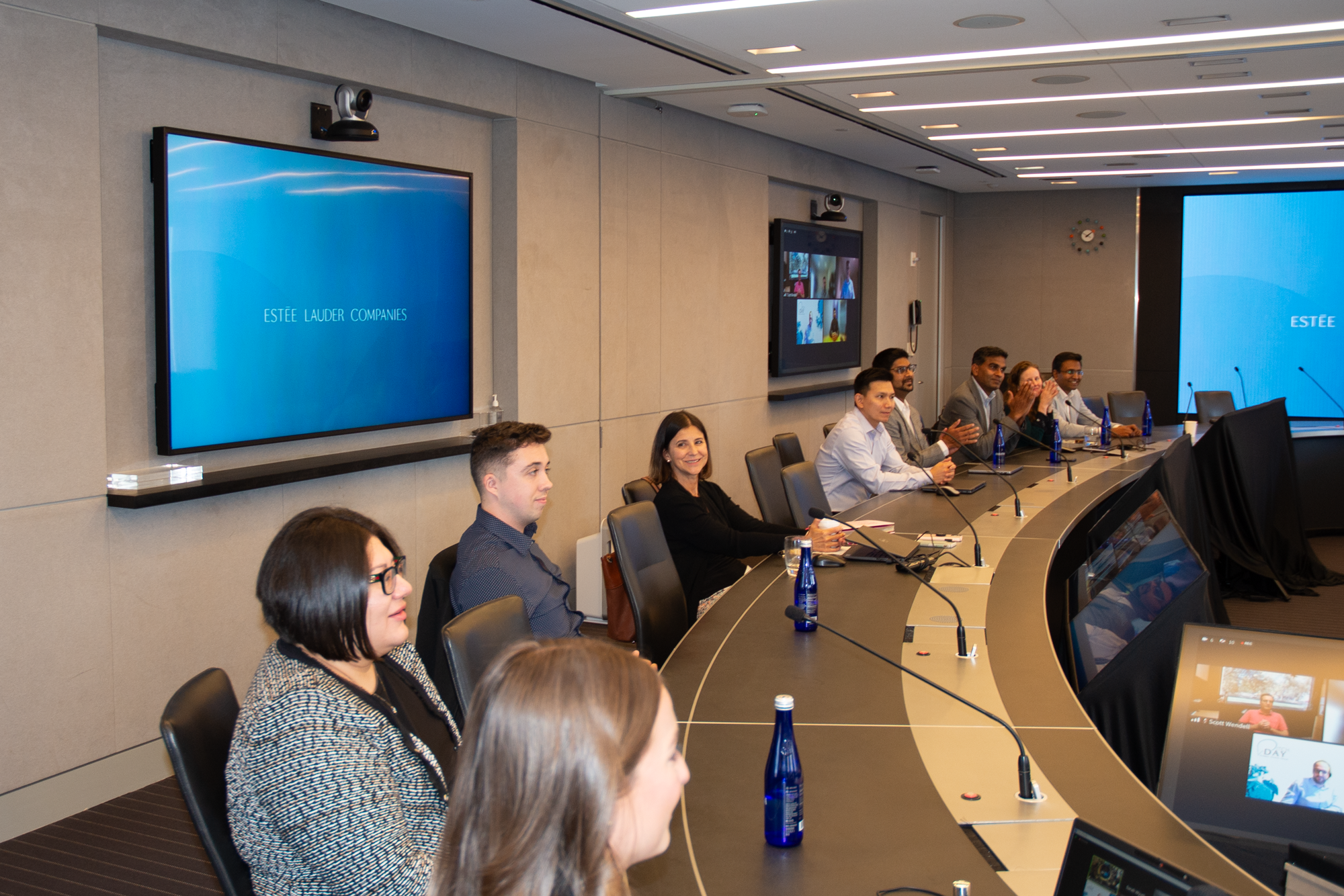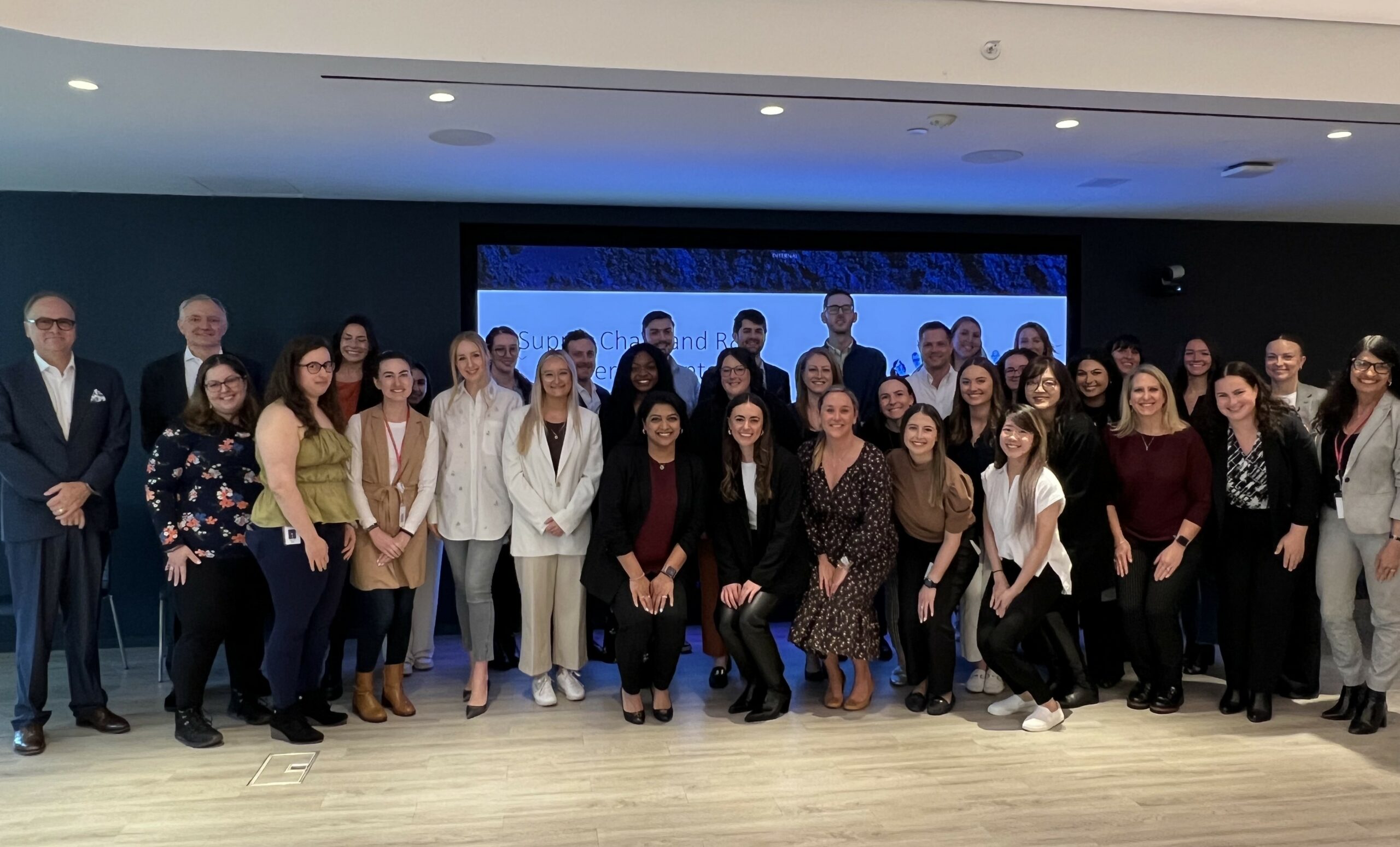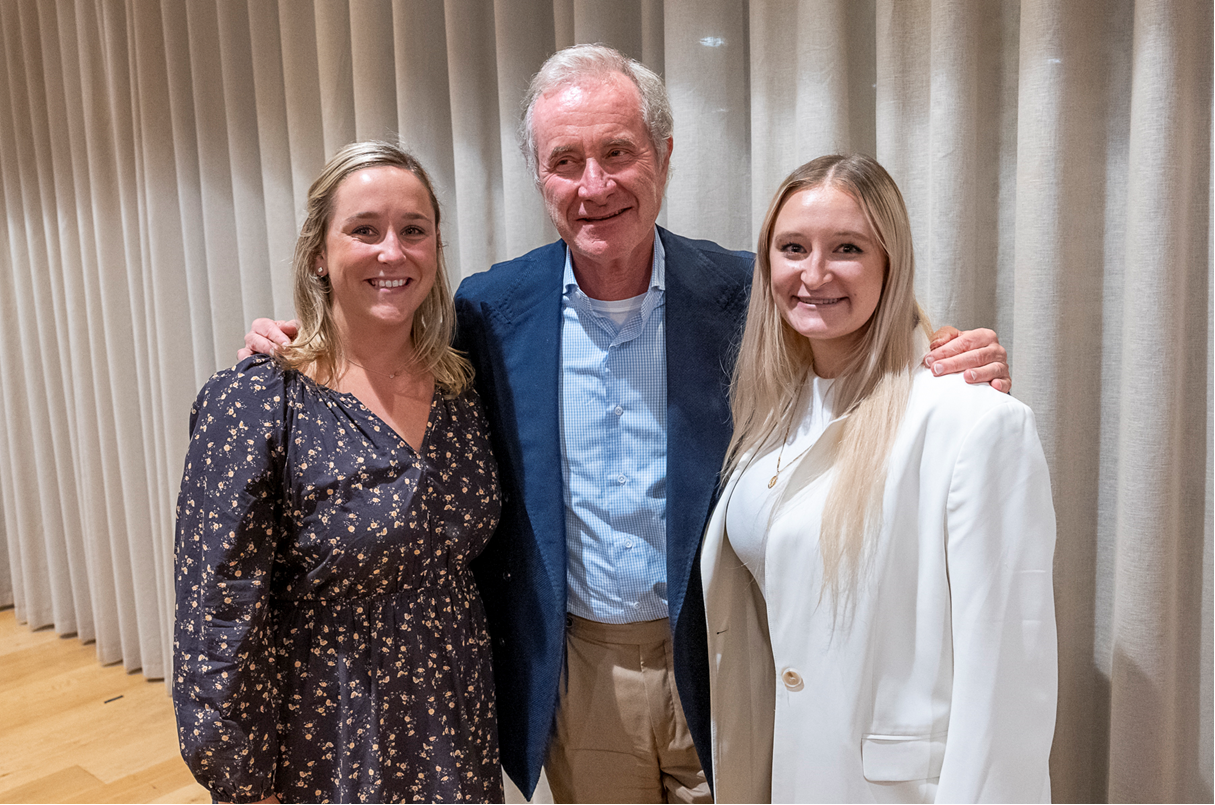Our Zero100 Community is obsessed not just with the technology to reinvent supply chains but also the supply chain talent that will power the reinvention. So, for this case study, we spoke with four leaders at the Estée Lauder Companies (ELC) about how they’re navigating the future of supply chain talent: recruiting and developing local talent, empowering the people behind the technology, fostering cultures that embrace diversity, and building open channels for new ideas.
EVOLVE YOUR TALENT STRATEGY
As we digitally reinvent supply chains at speed, supply chain leaders must keep their teams evolving at pace and invest in new talent strategies.
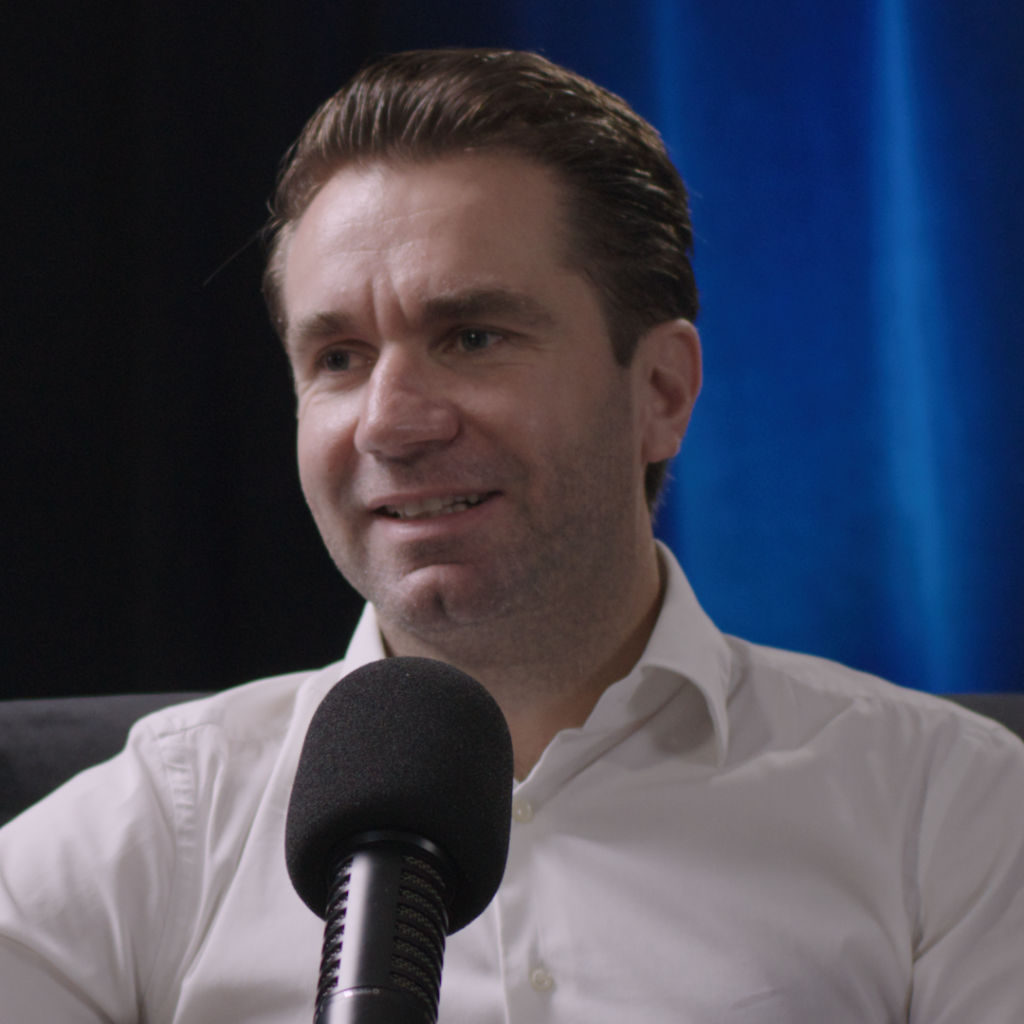
Florent Guillet-Caillot, VP of Global Supply Chain Strategy & Transformation, spoke to us about ELC’s strategic plan and how he is delivering it across people, processes, and technology.
Florent shared some details on ELC’s talent demands:
“I think we need people who can really see the world, who can understand the world, who can anticipate, who can mobilize and rally people. We need much more horizontal thinking than ever before. The macroeconomic events, geopolitical events, have an immediate knock-on impact on our operations… So how can you understand that? How can you anticipate and then turn that into supply chain actions?”
In addition to looking for business leaders to accelerate new horizontal ways of thinking, Florent also stressed the need for communication skills and storytelling: translating the complex into the simple for increased – and better – communication across internal and external stakeholders. These perspectives resonate with Zero100 research – our Rewired 2030 report found that the top three academic disciplines supply chain leaders consider the best foundation for must-have skills in 2030 are communications, computer science, and business. The typical respondent is looking for both left-brain analytical training and right-brain emotional intelligence, reflecting a new need for people who can break down a problem quantitatively but also work well with many kinds of people both internally and externally to imagine and deliver technology-enabled innovation in supply chain processes.
Florent emphasized that the company has a strong focus on its people:
Driving revenue is obviously extremely important, but, for us, it really starts with our people. What’s most powerful or impactful is our daily behaviors. Our mindset. How do we behave every single day with our people?”
To reinforce this, Florent shared ELC’s unique Global Supply Chain talent equation:
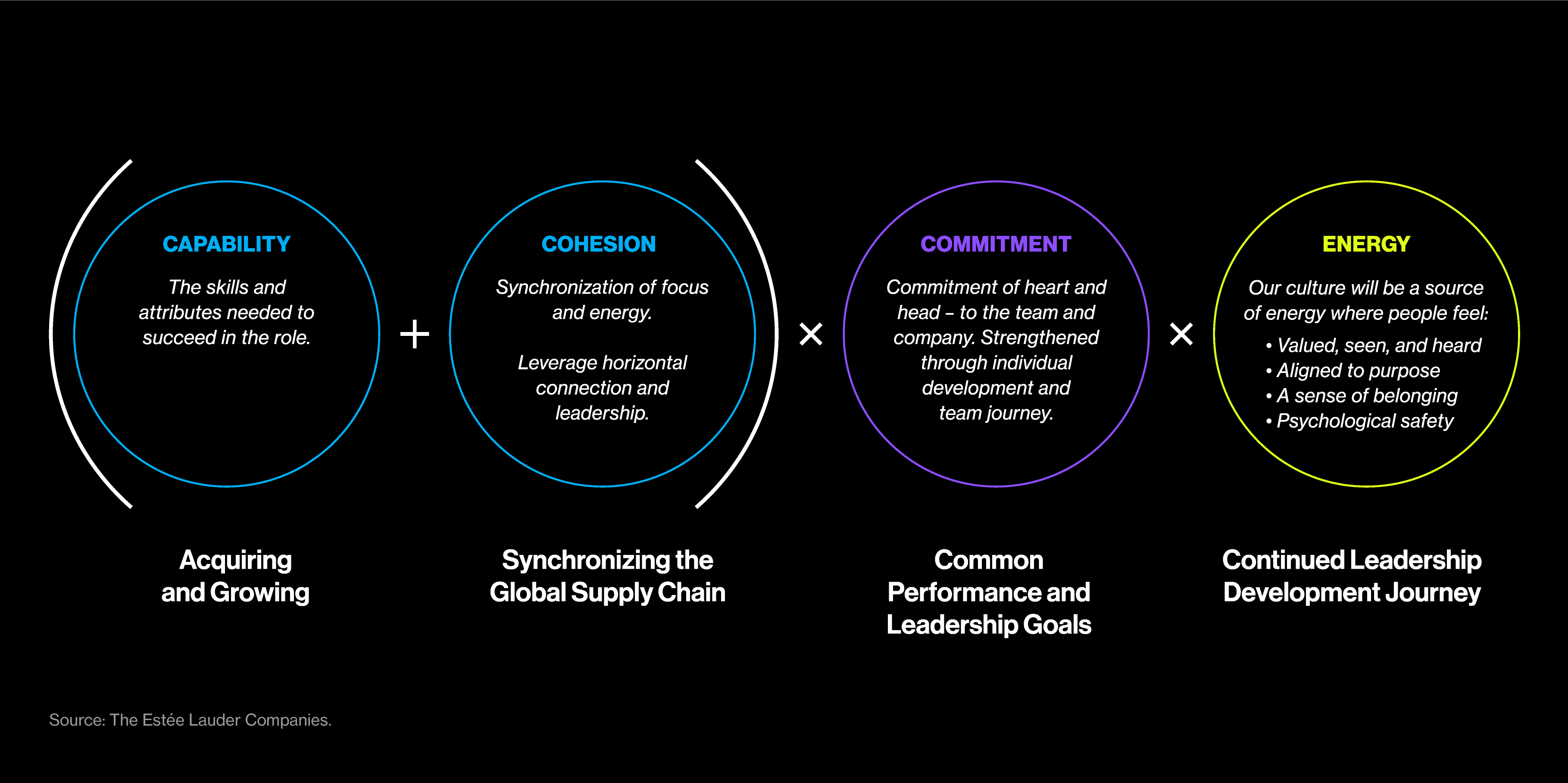
Florent was also excited to talk about how he focuses on managing energy more than managing time: “If you shift your mindset so that time is a resource and not a constraint, and you focus on your energy more than on your time, then you create energy for yourself. And you need that energy to give it to your people. I mean, things go fast. You can be quickly overwhelmed. You move from one crisis to another. So you need to find for yourself where you get your energy from, and make sure that you can constantly refuel and have that energy to also give back to your people and to your teams.”
He also mentioned that a good cup of espresso can help.
RECRUIT AND DEVELOP LOCAL TALENT
Alex Gregorian, SVP of Global Manufacturing, spoke about developments relating to his manufacturing operations:
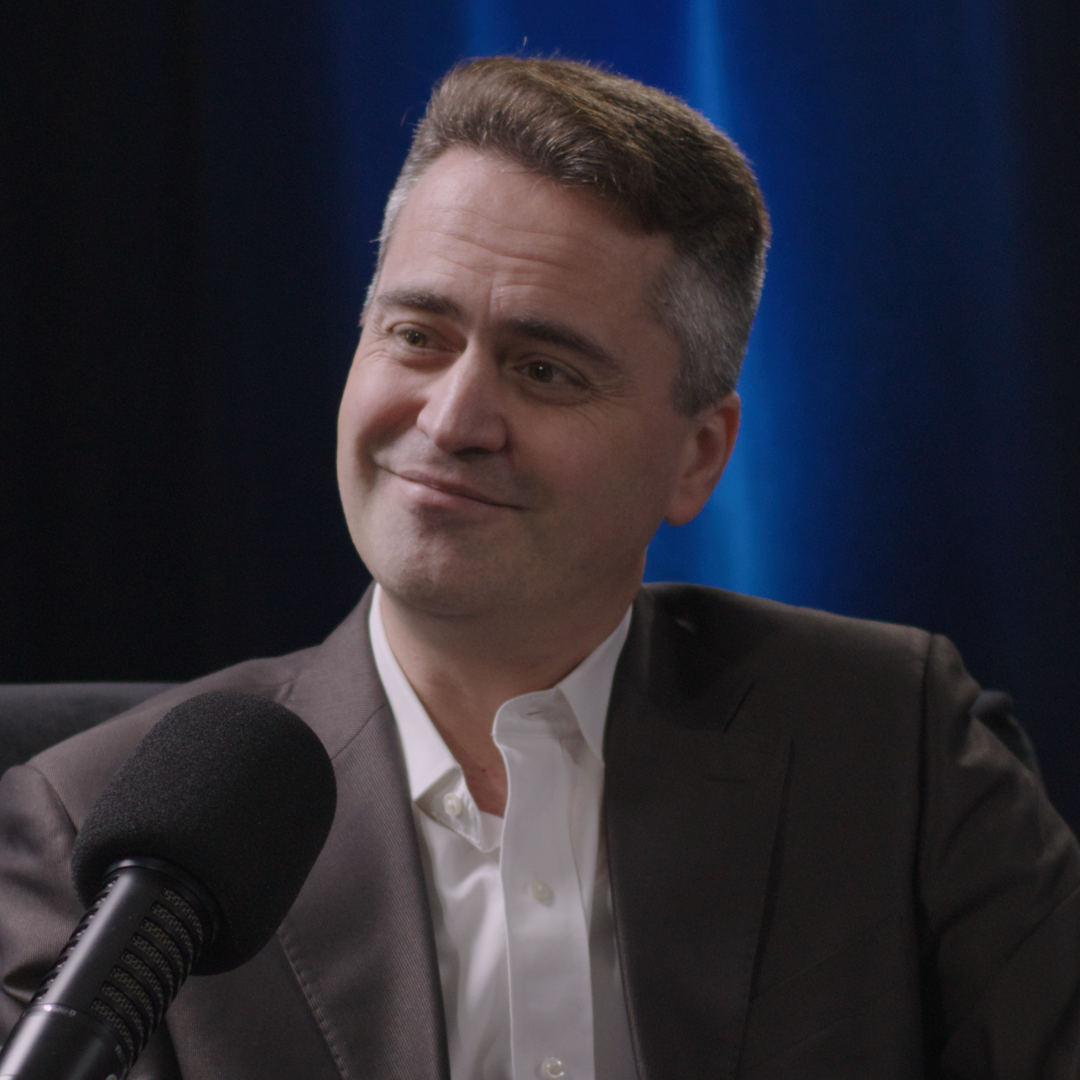
“There's a lot of transformation going on with manufacturing today. It's evolving rapidly with digital transformation, with Internet of Things, machine learning, neural networks, the list goes on and on. So that requires a greater set of skills from associates that are working in the factories.”
Alex shared two major changes. Firstly, upskilling the workforce and investing in regular upskilling for future generations, about which he said:
“Today, they are more prepared, especially if you foster cross-functional collaboration closer to the shop floor. You're creating self-directed work teams, where teams are capable of identifying the actions they have to take and are empowered to make those decisions faster.”
And secondly, increasing empowerment and autonomy for employees on the shop floor, enabling them to guide the development of manufacturing standards and make bigger decisions leveraging their expertise. Alex went into some of the detail on how manufacturing teams are now participating in upstream product development, helping with risk assessment and improving the efficiency of the industrialization process, all while thinking about how to reduce waste and cost and enhance performance and productivity.
“Now, we are engaging more and more of the manufacturing workforce to participate in the ideation on the risk assessment of new products and then drastically increasing the efficiency of the industrialization process.
This builds a greater level of competitiveness because you are able to deliver products faster.”
ELC manufacturing has dedicated programs to help both identify and develop new talent. The Supply Chain Scholars Program, which ELC built in partnership with Bucks County Community College and Temple University, is near their manufacturing facility in Bristol, Pennsylvania. Bucks County Community College serves a diverse student body – a prime opportunity for ELC to meet students where they are and to share knowledge and insights about career paths in supply chain operations.
In addition, ELC also has programs to develop talent within manufacturing teams. The Skills Training to Elevate Performance (STEP) program identifies talent from the shop floor who show potential to grow in the company. They enter an 18-month development program, with rotations in at least three different supply chain areas with the aim of promotion to manager-level roles. Then, the CLIMB (Collaborate, Lead, Innovate, Motivate, and Build) program kicks in, developing those who graduated from STEP and supporting them in their new role.
EMPOWER THE TEAMS BEHIND THE TECH
Applying new technology to manufacturing is critical to increase productivity and improve working conditions for the team on the shop floor, and investing in upskilling programs is critical to improve employee adoption and satisfaction.

Sowmya Gottipati, VP of Supply Chain Technology at ELC, answered my questions about the team behind the tech. Reporting to both the CSCO and CIO, she sits between supply chain, business, and technology:
“I am responsible for global supply chain technologies at the Estée Lauder Companies. My role is to drive a supply chain transformation through technology and lead our IT team to deliver the solutions that provide end-to-end digital connectivity and the agility that we need to stay competitive in the marketplace.”
ELC employs a multi-pronged approach to upskilling, comprising of formal and informal learning, development courses, and training workshops. Sowmya engages employees early in the upskilling process, during ideation and planning, which helps people get them invested and also increases the adoption of new technologies – key for maintaining a competitive edge and meeting consumer expectations – from the get-go:
If you engage employees upfront during the ideation and planning process, you get better engagement. They feel invested in the process.
"Otherwise… change is hard, right? They might get intimidated by the new technologies. But by involving them up front, they have a good lead time to process that and see the advantages of it. You get a better buy-in and thereby adoption."
Augmented reality (AR) is one specific technology Sowmya spoke about that has a major impact on the employee experience within ELC facilities. When employees are assembling items for shipping, instead of relying on a printout of what’s to be included, AR glasses can provide that information visually, or a voice-picking system can share the information audibly. Both of these allow an employee to complete their tasks hands-free.
FOSTER DEEP CONVERSATIONS ABOUT DIVERSITY

Beyond recruiting and developing diverse talent, supply chain leaders must support diverse talent and make space for conversations about inclusivity. Alexis Brown, Executive Director, Global Value Chain Transformation & Culture, talked to me about some of the programs in place at ELC.
ELC hosts a Women in Supply Chain Employee Resource Group that connects the larger supply chain community and cultivates an environment of learning, leadership, and coaching. The ERG continues to advocate, internally and externally, for ELC’s supply chain as a destination for women. It’s worth noting that ELC’s global supply chain is over 50% women (as of FY’2023), which is nearly 15% higher than best-in-class for CPG supply chains.
In addition, ELC created a Value Chain Conscious Inclusion (VCCI) program to foster conversations supporting an inclusive culture. Since the start of the program in 2021, ELC has conducted over 50 global VCCI events with an average attendance of over 150 employees.
“We've had amazing conversations around race, around identity, about the complexity of female leadership and what that looks like in any organization. We've had great conversations around how our value chain teams come together to develop more inclusive products, from our insights teams to our innovation teams, and how those teams come together at manufacturing sites.”
BUILD CHANNELS FOR NEW IDEAS
ELC works to create avenues for employees to share new ideas and accelerate impactful work – and builds this into their culture.
Three programs stand out:
New in 2023, Pitch Day is a Shark Tank-style competition where employees pitch innovative ideas to improve or streamline processes in their line of work. Over 100 innovations were submitted this year, with five finalists presenting before a panel of judges. The winning innovations – which ranged from compounding improvements to automated pre-weigh solutions – were granted funding to turn the ideas into reality.
The Fast to Action program is a small internal consulting arm that accelerates projects across the supply chain organization. Initiatives for this team are scoped for specific goals, take less than six months, and focus on value creation, not team augmentation. It’s great for helping ELC zero in on specific projects and solutions as well as talent development, giving participants exposure to various cross-functional projects on a steep and fast learning curve. Over the last two years, the small team has completed about 50 projects relating to how ELC plans, makes, sources, and delivers. One notable project, Performance Management, designed and launched an interactive dashboard with an executive view of critical performance KPIs. The Fast to Action team managed the project and orchestrated various supply chain functions and regions to align on KPI calculations, as well as the design of the interactive dashboard and how it would be used to support the ongoing process of Performance Management. The team also evolved the ongoing process of Performance Management, created a more robust governance model, and put the dashboard and KPIs at the center of the conversation to drive data-driven decision-making.
The Fast to Action team also led a recent COGs revolution. As part of this project, Fast to Action brought together various members across the ELC supply chain to determine areas of opportunity and the necessary actions required to bring down the cost of goods in new product launches, select in-line franchises, and commercial activations. The result of this work was a roadmap to deliver $76M in savings across three years. Now, Florent is exploring how to scale the program even further.
And finally, in the Reverse Mentorship program, the senior leaders are the mentees and the younger employees are the mentors. Florent reflected on these programs and different ways to engage employees in order to bring out the best in the organization, asking, “How do we create oxygen moments for our organization? Back to the equations, back to energy… How do we create some of those moments where you can disconnect from your daily routine, your daily activities, to learn?"
There are numerous different aspects within this program, from long-term disruptive projects to shared discussions on specified topics. Across ELC, there are over 680 reverse mentors globally. These conversations help provide “oxygen moments” that encourage individuals to think differently about their work.
TALENT TAKEAWAYS
Conclusions for the Zero100 Community
Evolve your talent strategy
As we digitally reinvent supply chains at speed, supply chain leaders must keep their teams evolving at pace and invest in new talent strategies.
Recruit and develop local talent
For manufacturing needs, build local partnerships to bring in new talent and build programs to develop young talent into leaders.
Empower the teams behind the technology
Applying new technology in supply chain is critical when it comes to increasing productivity and improving working conditions for the team on the shop floor. Investing in upskilling programs is also critical, helping to improve employee adoption of tech as well as job satisfaction.
Foster cultures that embrace diversity
Beyond recruiting diverse talent, supply chain leaders must create space to welcome diverse perspectives and backgrounds and foster an inclusive sense of belonging.
Build open channels for new ideas
Find ways to create avenues for employees to share new ideas and accelerate impactful work.
This case study shares the various frameworks and programs that ELC has in place, illustrating a broader approach to talent and the ways in which new ideas might be realized and put into practice. As digital tools and tech developments reinvent supply chain and operations, keeping pace and capitalizing on advancements requires investing – in new ways – in people.
About the Author

Karishma Jobanputra
Creative Copywriter, Zero100
Karishma Jobanputra is the Creative Copywriter at Zero100, writing, editing, and collaborating on content for the Community. With a background in publishing and law, she has worked in New York and London – and always with words. She holds a BA from Warwick University and an MFA in Creative Writing from Columbia University.
